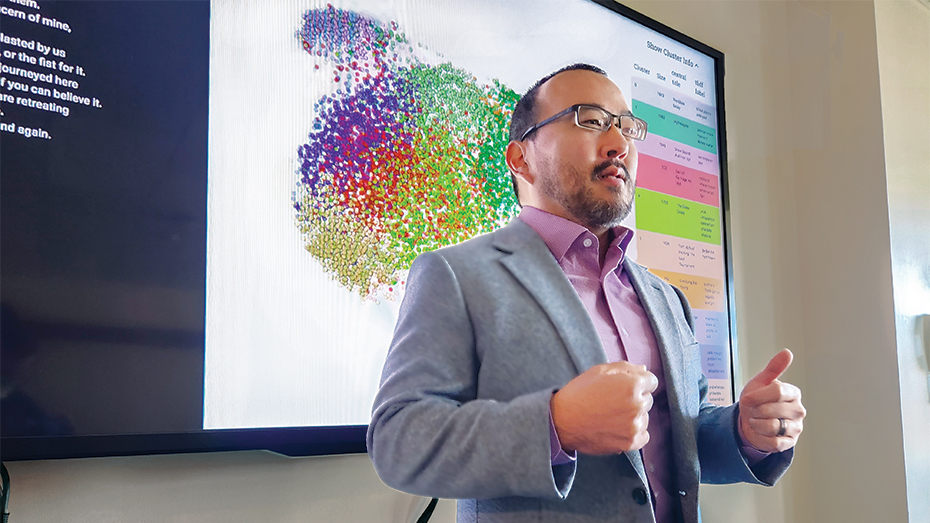Digital services are becoming more crucial
And we’re poised to deliver them

I arrived at Northwestern Libraries last year with a mandate from Dean Xuemao Wang to supercharge our innovation around digital scholarship. Dean Wang’s ambition is no surprise to me. He and I had already brought in grants totaling $2,527,000 from the Andrew W. Mellon Foundation and the National Science Foundation for this kind of work at the University of Cincinnati, and we’re going to continue leading our profession into the digital future here at Northwestern.
Digital scholarship is a broad term that covers all the ways we make information accessible, not only for browsing and reading but also for computational use and digital analysis. In one direction, it’s about using artificial intelligence and other digital tools to provide nontechnical scholars and audiences with access to large datasets. In the other direction, it’s about teaching researchers in the more technical fields how to dive more deeply into their data.
As an example, in my career I’ve worked extensively on biomedical informatics—things like doctors’ notes and nurses’ texts to one another in the course of care for complex multisystem children’s diseases. All this information can combine to create a useful 360-degree view of communication in a hospital, but in its raw form, it’s chaotic. That’s where I have helped apply machine learning models to impose logic in a way that a computer could recognize. Then researchers have been able to analyze ambiguous language patterns in a systematic way, demonstrating how library expertise in data can help pediatric hospitals tackle some of their most complex and challenging cases.
Terms like artificial intelligence and machine learning sometimes generate apprehensive reactions about the future. Here’s how I look at it: AI is not a robot, here to replace jobs; it’s an Archimedean lever, here to make lifting easier. There is AI in your camera phone and in the background of your navigation app, and it greatly improves how you carry out everyday tasks. These tools, and their potential impacts, can be truly interdisciplinary when applied to research and teaching.
The Libraries have been proactive in this work and are already five years ahead of some of our peers. But we must remain agile. To that end, Dean Wang has restructured two library work groups now in my portfolio. Digital Products and Data Curation is the reimagined Repository and Digital Curation, where multiple archival software tools are being developed; the newly formed Digital Scholarship and Research Data Management unifies all our digital librarianship specialists into a single network that collaborates directly with faculty members on their research. Read more about both teams in this issue.
The question I hear a lot is “Why should the Libraries be the ones leading this work?” It’s because our job is to assist researchers—and today’s researchers aren’t just looking at 10 primary-source books and 10 journal articles but at 1 million texts and 2 billion data points. The fundamental work of a library is unchanged, but we are moving swiftly into these digital spaces so that we remain essential partners across the academic spectrum.